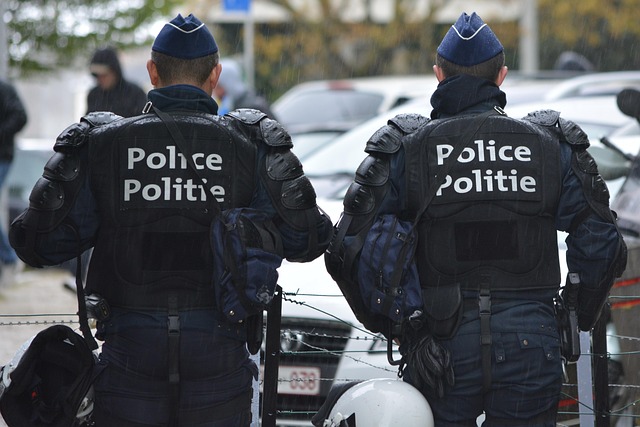Mastering Understanding Criminal Procedure Law Basics is essential for successfully navigating complex C-Level investigations, particularly in white-collar defense cases. This area of law establishes fair and due process rules from arrest to sentencing, guiding investigators and prosecutors. In C-Level probes initiated by reasonable suspicion or evidence, strict adherence to protocols ensures fairness. Knowledgeable legal professionals can protect clients' rights, avoid unjust indictments, and secure favorable verdicts through strategic planning and balancing thoroughness with legal boundaries. Continuous education and ethical conduct are vital to upholding integrity and justice in high-stakes investigations.
“In the realm of corporate governance, C-level investigations play a pivotal role in upholding integrity. This article provides an in-depth look at the intricacies of these high-stakes inquiries, focusing on Understanding Criminal Procedure Law basics. We explore when such investigations are initiated, dissecting the legal framework that governs them. From process to best practices and common pitfalls, this guide equips readers with crucial knowledge for effective navigation through complex corporate investigations.”
- What is Criminal Procedure Law?
- When Are C-Level Investigations Launched?
- Understanding the Legal Framework
- The Process of a C-Level Investigation
- Best Practices and Common Pitfalls
What is Criminal Procedure Law?

Understanding Criminal Procedure Law Basics is essential for anyone involved in legal matters, especially when navigating complex cases like those involving white-collar defense. This area of law outlines the rules and procedures that govern criminal investigations and trials, ensuring fairness and due process for both corporate and individual clients facing charges. It encompasses everything from arrest and initial appearances to pretrial hearings and ultimately, sentencing.
Criminal Procedure Law guides investigators and prosecutors in gathering evidence, interviewing witnesses, and upholding constitutional rights while avoiding indictment in cases where the facts warrant it. By understanding these procedures, legal professionals can better protect their clients’ interests, ensure a fair trial, and navigate the intricate labyrinth of regulations, specifically designed to balance public safety with individual liberties in the context of white-collar defense.
When Are C-Level Investigations Launched?

C-Level investigations are launched when there is a reasonable suspicion or evidence of criminal activity involving high-ranking executives or decision-makers within an organization. This often occurs when companies face allegations of fraud, corruption, or other serious offenses that could have significant legal and financial implications. Understanding criminal procedure law basics is crucial in these scenarios as it dictates the steps authorities must take during investigations to ensure fairness and due process.
Knowing the appropriate timeline and procedures can be vital for those looking to avoid indictment and win challenging defense verdicts. These investigations encompass all stages of the investigative and enforcement process, from initial fact-finding to prosecution, requiring meticulous documentation and adherence to legal protocols.
Understanding the Legal Framework

In navigating C-Level investigations, understanding the legal framework is paramount. At its core, this involves a deep dive into Criminal Procedure Law basics, including the rights of both corporate and individual clients. Investigating bodies must adhere to strict protocols to ensure fairness and due process throughout the inquiry. This includes safeguarding against unnecessary indictment, especially in cases involving white collar and economic crimes, which often require delicate handling due to their complex nature and high-stakes implications.
Knowledge of relevant laws enables effective strategic planning and decision-making. For investigators, it’s crucial to balance the need for thorough examination with respect for legal boundaries. This is particularly significant when dealing with corporate entities, where accusations can have far-reaching consequences. Understanding these intricacies fosters a balanced approach, guiding investigations while avoiding potential pitfalls that could undermine cases, especially in the complex landscape of white collar and economic crimes.
The Process of a C-Level Investigation

When a C-level investigation is launched, it’s crucial to understand the intricacies of criminal procedure law basics. This process involves a series of meticulous steps designed to ensure fairness and due process for all involved. It begins with the initial complaint or allegation, which is then evaluated by legal experts to determine if there’s sufficient evidence to proceed. This phase is critical as it sets the groundwork for the entire investigation.
The subsequent stages involve formal investigations, where law enforcement agencies or internal affairs departments gather and analyze relevant information. This includes interviewing witnesses, reviewing documents, and collecting physical evidence. The goal is to uncover facts objectively and independently. In high-stakes cases, this process can be complex due to the potential impact on individuals’ careers and reputations. However, a thorough investigation ultimately facilitates an informed decision, whether leading to a complete dismissal of all charges or proceeding to jury trials.
Best Practices and Common Pitfalls

Understanding Criminal Procedure Law Basics is paramount for any C-Level investigations to ensure a fair and just process. When navigating this complex landscape, best practices include adhering to strict procedural guidelines, maintaining thorough documentation, and prioritizing transparency throughout all stages of the investigative and enforcement process. This approach fosters trust within the philanthropic and political communities, crucial for public support and legitimacy.
Conversely, common pitfalls often arise from ignoring these fundamentals. Inadequate understanding or disregard for criminal procedure law can lead to evidence mishandling, procedural errors, and even winning challenging defense verdicts due to technicalities. Avoiding these traps requires continuous education, meticulous planning, and a commitment to ethical conduct throughout each step of the investigation, ultimately ensuring integrity and accountability in the legal process.
Understanding Criminal Procedure Law basics is paramount when considering that C-level investigations are launched in extreme cases, often involving high-ranking individuals. By grasping the legal framework and adhering to best practices, organizations can navigate these intricate processes effectively. This ensures a balanced approach between upholding justice and protecting individual rights, ultimately fostering a fair and transparent environment for all.






